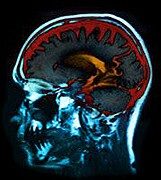- Could Your Grocery Store Meat Be Causing Recurring UTIs?
- Are You Making This Expensive Thermostat Error This Winter?
- Recognizing the Signs of Hypothyroidism
- 10 Strategies to Overcome Insomnia
- Could Artificial Sweeteners Be Aging the Brain Faster?
- Techniques for Soothing Your Nervous System
- Does the Water in Your House Smell Funny? Here’s Why
- Can a Daily Dose of Apple Cider Vinegar Actually Aid Weight Loss?
- 6 Health Beverages That Can Actually Spike Your Blood Sugar
- Treatment Options for Social Anxiety Disorder
Low Vitamin D Levels in Stroke Survivors a Bad Sign, Study Finds


Low vitamin D levels are linked to an increased risk of suffering a severe stroke and poor health in stroke survivors, new research finds.
The study included almost 100 stroke patients who were treated at a U.S. hospital between 2013 and 2014. All had experienced an ischemic stroke, which is a stroke caused by blocked blood flow to the brain.
People with low blood levels of vitamin D — less than 30 nanograms per milliliter (ng/mL) — had about two times larger areas of stroke-related dead brain tissue than those with normal vitamin D levels, according to the study.
The researchers also found that for each 10 ng/mL reduction in vitamin D level, the odds of a healthy recovery in the three months after stroke fell by about half, regardless of age or initial stroke severity.
Although this study found an association between low vitamin D levels and poor stroke outcomes, it wasn’t designed to show whether or not vitamin D levels actually caused any of those problems.
“It’s too early to draw firm conclusions from our small study,” senior author Dr. Nils Henninger, assistant professor of neurology and psychiatry at University of Massachusetts Medical School in Worcester, said in an American Stroke Association news release.
“However, the results do provide the impetus for further rigorous investigations into the association of vitamin D status and stroke severity. If our findings are replicated, the next logical step may be to test whether supplementation can protect patients at high risk for stroke,” Henninger said.
The study was scheduled to be presented Wednesday at the American Stroke Association’s annual meeting in Nashville. Findings from studies presented at meetings are generally considered preliminary until they’ve been published in a peer-reviewed journal.
More information
The U.S. National Heart, Lung, and Blood Institute has more about stroke.
Source: HealthDay
Copyright © 2026 HealthDay. All rights reserved.










